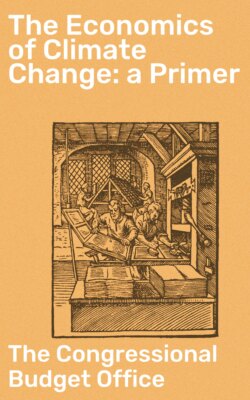Читать книгу The Economics of Climate Change: a Primer - The Congressional Budget Office - Страница 8
На сайте Литреса книга снята с продажи.
International Coordination
ОглавлениеTable of Contents
Because the causes and consequences of climate change are global in nature, effective policies to deal with it will probably require extensive international coordination among countries with very different circumstances and interests. Coordination may involve formal treaties or nonbinding agreements and could range from modest commitments to engage in research to more-extensive programs to restrict emissions, monitor compliance, and enforce penalties.
Effective international agreements typically involve straightforward commitments and distribute costs in a way that is acceptable to participating countries. Binding commitments with explicit penalties may be more likely than nonbinding ones to ensure compliance, but nonbinding agreements may also significantly affect a nation’s actions. Many factors will influence the effectiveness of international cooperation, particularly the size and distribution of the costs and benefits of mitigating climate change and the strength of conflicting interests. Successful cooperation would entail frequent interaction among national representatives and link discussion of climate issues with that of related problems.
An international system of emissions controls could draw on the same set of options that domestic regulation employs—direct controls, emissions taxes or permits, or a hybrid system—or it could allow each country to choose its own independent system. Much of the international debate in recent years has focused on strictly limiting emissions through national quotas, with or without the international trading of emissions rights. However, quantitative limits are likely to prove more costly than approaches that affect emissions indirectly by raising their price. And because there are low-cost opportunities to reduce emissions throughout the world and because fossil fuels can be transported relatively easily, a system that raised the price of emissions everywhere would probably be more cost-effective than one that applied only to a limited set of countries.
International cooperation on the issue of climate change has been developing since the Intergovernmental Panel on Climate Change was created in 1988. And nearly all nations, including the United States, are signatories to the United Nations Framework Convention on Climate Change, which commits them to undertake research and prevent dangerous changes in the Earth’s climate. In 1997, negotiators signed the Kyoto Protocol (a draft treaty) to the convention, under which developed countries agreed to limit emissions while developing countries remained exempt from restrictions. However, subsequent negotiations collapsed in 2000 over details of implementation, and the United States withdrew from the talks in 2001. Ironically, that withdrawal made some of the positions that the United States had advocated much more attractive to the remaining parties and helped them reach agreement on nearly all outstanding implementation issues. The European Union and Japan ratified the protocol in mid-2002; it will go into force if Russia follows suit.
The protocol’s implementation would establish a complex set of emissions rights for a limited set of developed countries for the period 2008 through 2012. It would also put into place institutions to oversee international financial transfers amounting to several billion dollars per year for the purchase of emissions allowances, mainly among the developed countries. However, the protocol would limit participating countries’ overall emissions by only a small amount and would have essentially no effect on the growth of emissions in the United States and in developing countries.
Analysts have proposed a variety of alternatives to the provisions of the Kyoto Protocol to try to improve the potential effectiveness of international cooperation and broaden its appeal. Each alternative simultaneously addresses the problems of limiting emissions and distributing the burden of regulation, which remain the crucial sources of disagreement. Each option reflects a distinct interpretation of the available evidence about the net benefits of averting climate change in different regions and for different generations, as well as practical concerns about how climate policy would affect the global economy.
Some analysts argue for a laissez-faire approach because they believe that the amount of warming is likely to be small and its effects largely benign, or that near-term action is unwarranted in the light of scientific uncertainty. Other researchers have proposed systems of emissions taxes or tradable emissions permits that would be auctioned at fixed prices. In general, the permits would apply to developed countries and exempt developing nations on the grounds of equity. Still other analysts have proposed complex systems that are intended to impose roughly uniform emissions prices throughout the world yet ensure that developed countries bear most of the cost.
